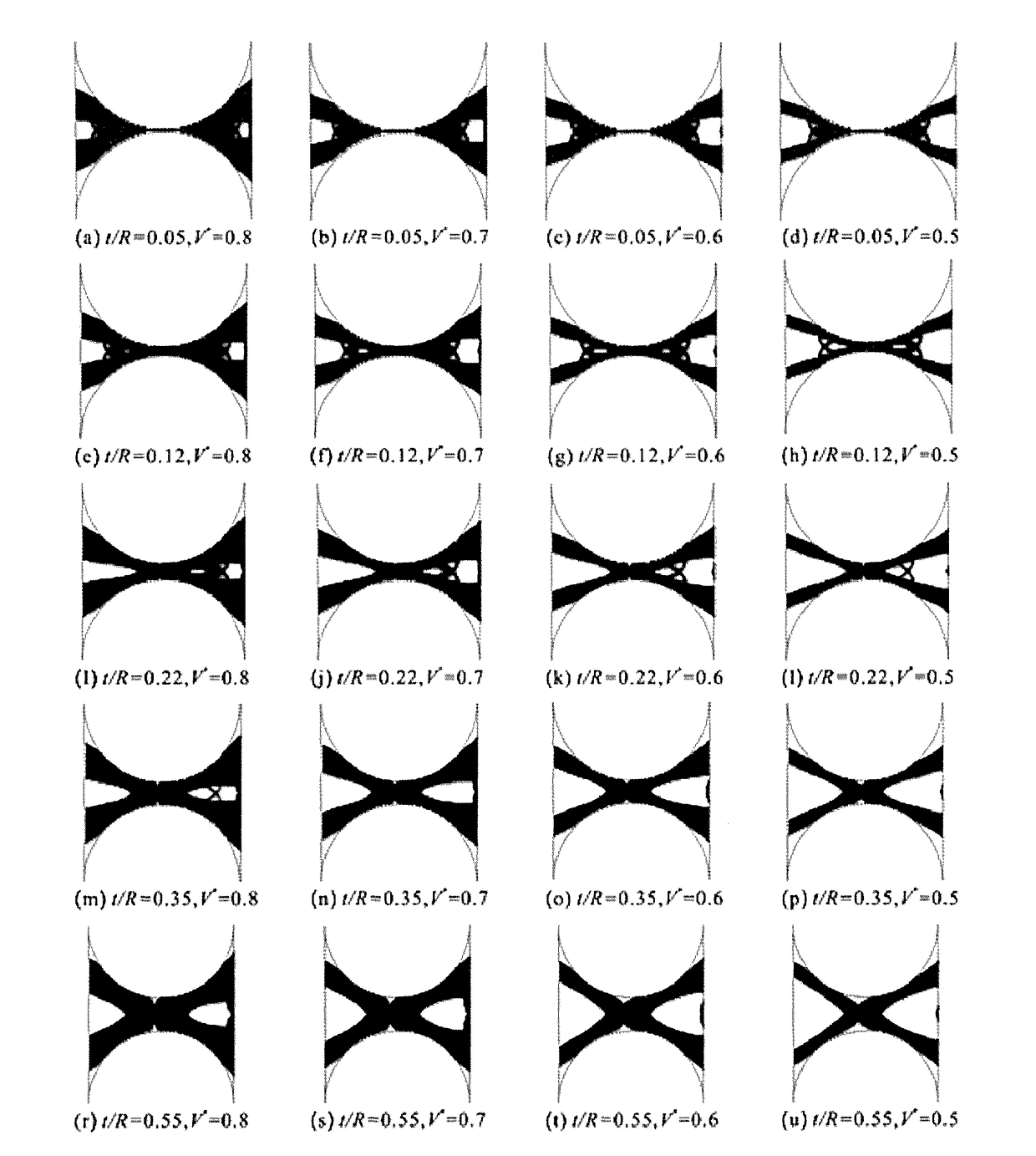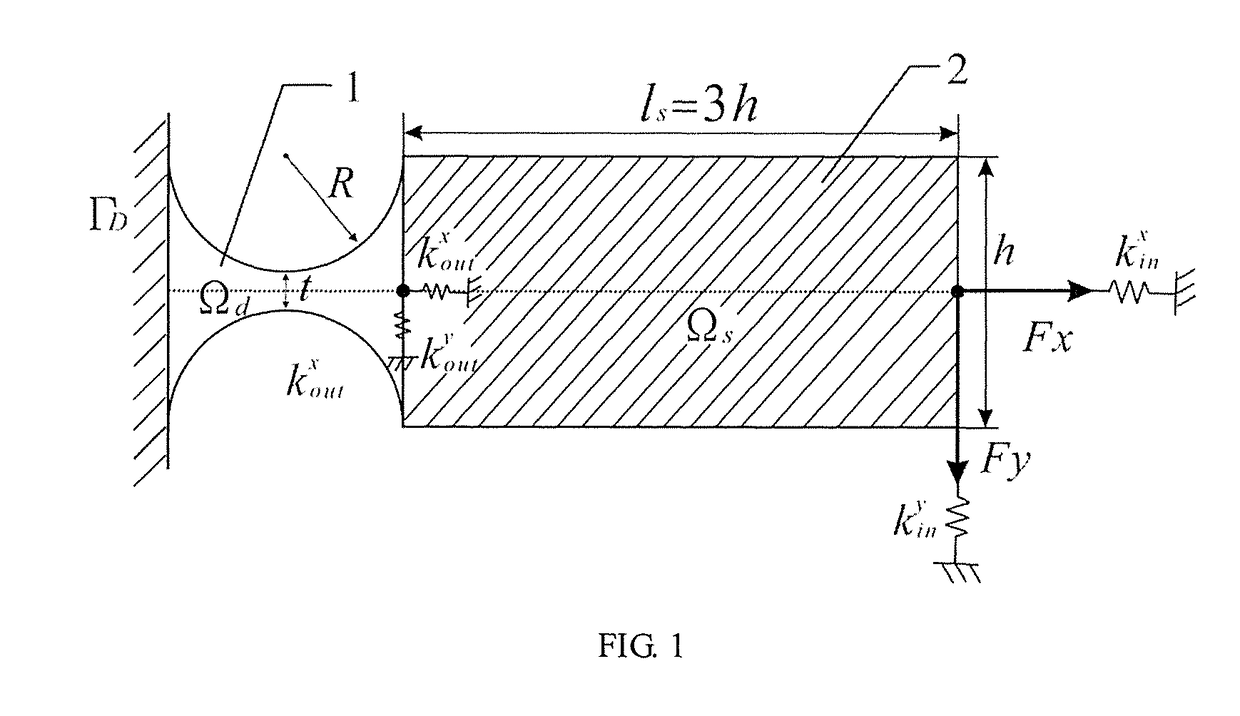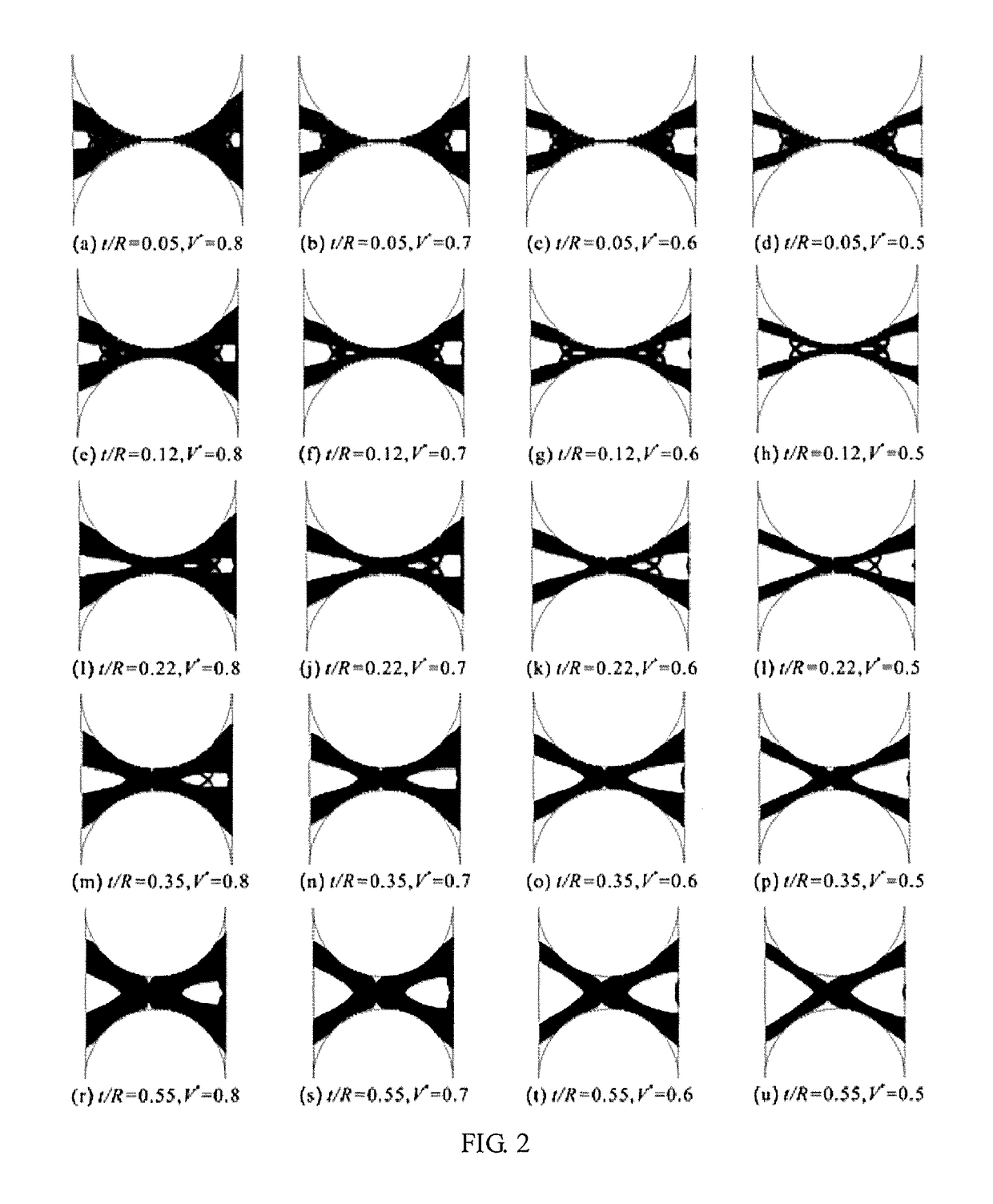Design method of topology optimization for flexible hinge
a topology optimization and hinge technology, applied in multi-objective optimisation, instruments, cad techniques, etc., can solve the problems of limiting the movement range of the hinge, small rotation flexibility, and difficulty in meeting the three indexes at the same time, so as to improve the performance, improve the rotation flexibility, and improve the effect of rotation precision
- Summary
- Abstract
- Description
- Claims
- Application Information
AI Technical Summary
Benefits of technology
Problems solved by technology
Method used
Image
Examples
Embodiment Construction
[0028]In order to better understanding the invention, it will be further specified below in combination with accompanying drawings of which implementations are not limited thereby.
[0029]In accordance with FIGS. 1-4, a design method of topology optimization for flexible hinge specifically comprises following steps:
[0030]step 1: establishing a design model of topology optimization for flexible hinge and setting an outline of typical flexible hinge as a design domain. In this embodiment, the outline of a straight-circular type flexible hinge serves as the design domain 1, but the design domains of the invention are not limited thereby. Sizes of design domain 1 and a non-design domain 2 (a rigid component) are defined. A radius R of design domain 1 is set as 40 mm and a minimum thickness t is set as 20 mm. A length of non-design domain ls is set as 300 mm and a thickness is set as 1 mm.
[0031]Step 2: establishing a finite element model of topology optimization for flexible hinge. A Young...
PUM
 Login to View More
Login to View More Abstract
Description
Claims
Application Information
 Login to View More
Login to View More - R&D
- Intellectual Property
- Life Sciences
- Materials
- Tech Scout
- Unparalleled Data Quality
- Higher Quality Content
- 60% Fewer Hallucinations
Browse by: Latest US Patents, China's latest patents, Technical Efficacy Thesaurus, Application Domain, Technology Topic, Popular Technical Reports.
© 2025 PatSnap. All rights reserved.Legal|Privacy policy|Modern Slavery Act Transparency Statement|Sitemap|About US| Contact US: help@patsnap.com



